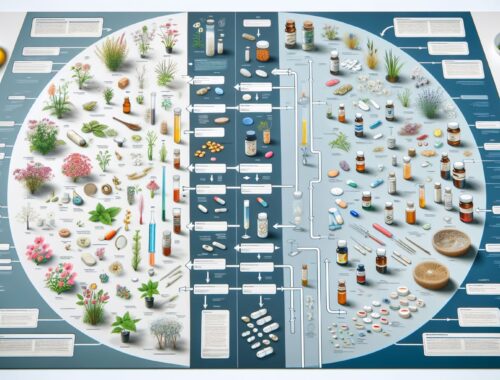
Exploring the World of Medicines
Medicines play a crucial role in maintaining our health and treating various illnesses. There are different types of medicines available, each serving a specific purpose in the treatment of different medical conditions. Understanding the different categories of medicines can help us make informed decisions about our healthcare.
Categories of Medicines
-
Over-the-Counter (OTC) Medicines – These are medications that can be purchased without a prescription. Common examples include pain relievers, cough syrups, and antacids. OTC medicines are usually used for minor ailments and symptoms.
-
Prescription Medicines – These medications require a prescription from a healthcare provider. They are often used for more serious medical conditions and require supervision and monitoring by a doctor. Prescription medicines include antibiotics, antidepressants, and chemotherapy drugs.
-
Generic Medicines – These are medications that contain the same active ingredients as brand-name drugs but are usually more affordable. Generic medicines undergo strict regulations to ensure they are safe and effective for use.
-
Herbal Remedies – Herbal medicines are derived from plants and are used for various health purposes. Many people choose herbal remedies as an alternative to traditional medicines due to their natural origins. However, it is essential to consult a healthcare provider before using herbal remedies, as they can interact with other medications or have side effects.
-
Homeopathic Medicines – Homeopathy is a form of alternative medicine that uses highly diluted substances to treat illnesses. Homeopathic medicines are based on the principle of “like cures like” and aim to stimulate the body’s natural healing processes.
-
Vitamins and Supplements – These are products that contain essential nutrients, vitamins, and minerals. They are often used to supplement a person’s diet and promote overall health and wellness. Vitamins and supplements can be beneficial when a person has specific deficiencies or needs extra support for their health.
Conclusion
Medicines come in various forms and serve different purposes in healthcare. Whether it’s treating common cold symptoms with OTC medications or managing chronic conditions with prescription drugs, medicines play a vital role in maintaining our well-being. It is essential to use medicines responsibly, following the guidance of healthcare providers and understanding the potential risks and benefits of each type of medication. By being informed about the different categories of medicines, we can make empowered decisions about our health and treatment options.
You May Also Like

Understanding the Different Types of Medicines
February 1, 2024
Understanding the Different Types of Medicines
December 22, 2023

